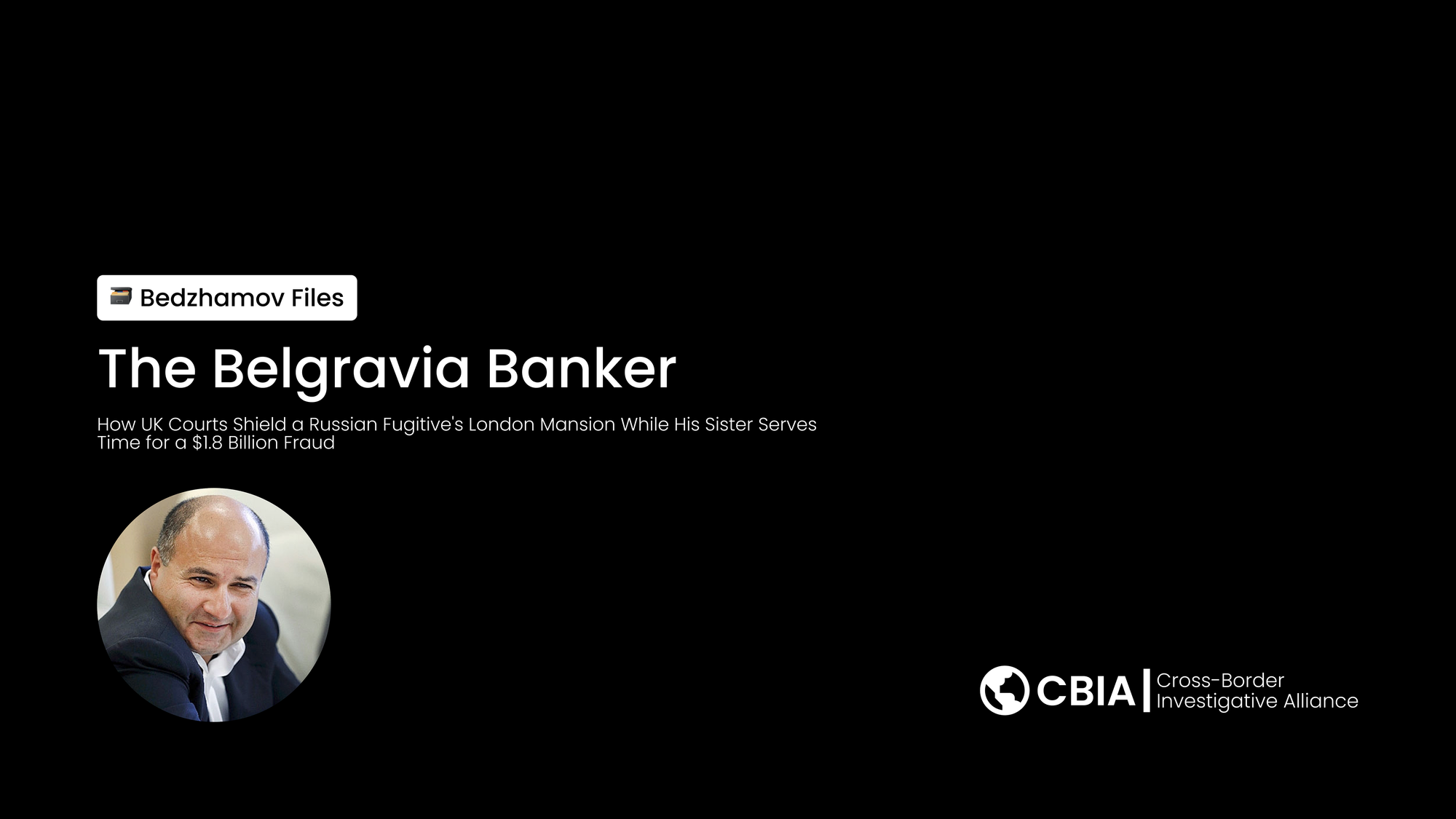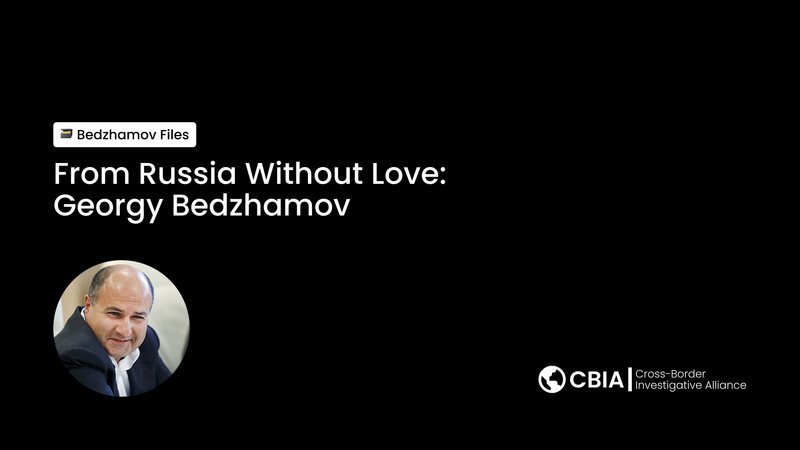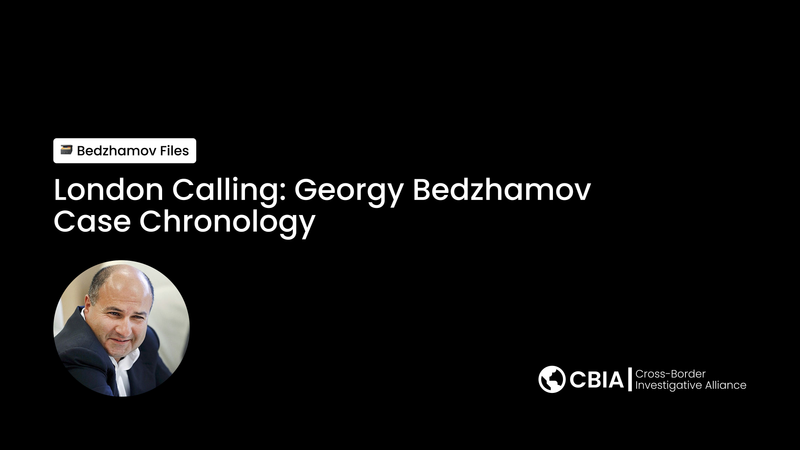The Belgravia Banker: How UK Courts Shield a Russian Fugitive's London Mansion While His Sister Serves Time for a $1.8 Billion Fraud
In the heart of London's exclusive Belgravia district, a sprawling mansion worth millions stands as a symbol of how cross-border legal complexities can protect ill-gotten wealth. The property belongs to Georgy Ivanovich Bedzhamov, a fugitive Russian banker whose sister pled guilty to embezzling $1.8 billion from their collapsed bank, yet he continues to live lavishly in London under court protection.
Bedzhamov co-owned Russia's Vneshprombank with his sister Larisa Markus until the bank's spectacular collapse in 2016. The Central Bank of Russia discovered a shortfall of 187.4 billion rubles ($2.3 billion) and revoked the bank's license. According to court records, the siblings "developed a plan" to attract large depositors "in order to fill the Bank with cash and create the possibility of committing theft".
While Markus was arrested in December 2015 and later sentenced to nine years in prison (reduced by six months) for her role in the fraud, Bedzhamov fled Russia just before his sister's arrest. Initially detained in Monaco on a Russian extradition request, he was later released and made his way to London, where he has lived since 2017.
A Web of Offshore Companies
Investigative documents from the Pandora Papers reveal the sophisticated methods Bedzhamov used to hide his assets. Through Nicosia-based law firm Demetrios A. Demetriades LLC (known as Dadlaw), Bedzhamov and his sister created a complex web of offshore companies to conceal their wealth.
The documents show how the siblings backdated crucial transactions to avoid asset seizure. After Markus's arrest on December 19, 2015, she wrote to Dadlaw on December 28 instructing them to transfer ownership of Stanferme Asset Management Inc, a British Virgin Islands company, to her brother. However, Bedzhamov only accepted the shares more than a year later, on January 16, 2017, specifically requesting that the transaction be backdated to November 2, 2015 – more than a month before his sister's detention.
"Please pay special attention that this transaction must be recorded with effect from 2nd November 2015, as that is the date that I wish the transaction to take effect," Bedzhamov wrote.
Transparency International's Ilya Shumanov explained the significance: "An attempt to confirm the transfer of the company's shares retroactively looks like a pre-agreed action by the parties in order not to lose control over the assets".
Suspicious Financial Flows
The Pandora Papers also reveal over $50 million in loans to Bedzhamov during 2012 and 2013 – precisely when the embezzlement of Vneshprombank funds was occurring. These loans flowed through opaque Cypriot companies and UK limited liability partnerships ultimately owned by entities in secretive tax havens like the Marshall Islands and Belize.
These loan arrangements raised multiple red flags. The agreements were missing key elements like repayment schedules and guarantor names, and even misspelled Bedzhamov's name in different ways ("Bezamov" and "Bedgamov"). According to Shumanov, such misspellings "could be used to mislead the compliance division of a bank... in an attempt to avoid being held accountable by the financial regulator".
Global Financial Integrity's Lakshmi Kumar noted that such complex arrangements "make money move between multiple jurisdictions, making it harder to connect dots and establish a forensic trail".
Legal Protection in London
Despite a worldwide asset freeze imposed by London's High Court in March 2019, Bedzhamov has managed to maintain his luxurious lifestyle. A court ruling in 2019 granted him a monthly allowance of £120,000 (approximately $160,000) for "subsistence, rent, personal security, and other expenses".
Most significantly, a November 2024 UK Supreme Court ruling in the case Kireeva v Bedzhamov has effectively shielded his London property from Russian bankruptcy proceedings. The case involved Lyubov Andreevna Kireeva, appointed as trustee in Bedzhamov's Russian bankruptcy, who sought to gain control of his Belgravia Square property and associated mews house.
The Supreme Court unanimously ruled that under English law's "immovables rule," foreign bankruptcy proceedings cannot affect property located in England. As the court explained: "The immovables rule has the effect that at common law no recognition will be given to any provision of foreign law or any order of a foreign court which purports to affect rights to or interests in land located in England".
This ruling means that despite being declared bankrupt in Russia with obligations totaling 218 billion rubles (around $3 billion), Bedzhamov's most valuable UK asset remains beyond the reach of Russian authorities and creditors.
The Human Cost
The collapse of Vneshprombank affected numerous high-profile depositors, including family members of Russian government officials, government ministries, state-owned corporations, and the Russian Orthodox Church, who had entrusted the bank with tens of billions of rubles. Ordinary depositors also suffered losses when the bank's fraudulent scheme unraveled.
Meanwhile, Russian authorities continue their efforts to recover stolen assets. The Russian Deposit Insurance Agency has even deployed mobile billboards around London's Knightsbridge area asking residents for information about Bedzhamov and Markus's assets.
A Legal Sanctuary
The Bedzhamov case illustrates how sophisticated financial criminals can exploit differences between national legal systems to protect their wealth. While the UK's immovables rule serves legitimate purposes – protecting property rights and respecting territorial sovereignty – it can also create unintended sanctuaries for assets derived from serious crimes committed abroad.
Bedzhamov's London life continues under legal protection while his victims remain unpaid. He has applied for asylum in the UK and, despite being subject to a worldwide asset freeze, lives comfortably on his court-approved allowance that exceeds the annual income of most British households.
The case raises fundamental questions about international cooperation in asset recovery and whether legal technicalities should provide shelter for those accused of billion-dollar frauds. As courts in different jurisdictions wrestle with these complex cross-border issues, the human and economic costs of financial crime continue to mount.
Sources:
[1] Organized Crime and Corruption Reporting Project (OCCRP), "Fugitive Russian Banker Used Cypriot Law Firm to Hide Assets, Move Money", retrieved 2024
[2] The Supreme Court of the United Kingdom, "Kireeva v Bedzhamov" [2024] UKSC 39, retrieved 2024




